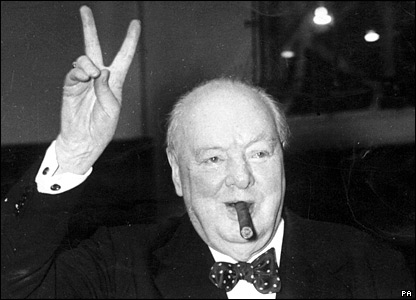Winston Churchill, John F. Kennedy remarked, "Mobilised the English language into battle." But how did he achieve such a feat? One of the many rhetorical devices Churchill effectively employed, and often, was the Tricolon. The tricolon, derived from Isocolon, is a figure of speech using three parts, or cola, balanced in structure, weight and rhythm.
It's more simply known as the "list of three." Referring to an impassioned defence of his homeland during the Battle of Britain in August, 1940, he said ""Never in the field of human conflict was so much owed by so many to so few." The last part is a perfect tricolon.
So powerful is this rule, history incorrectly remembers Churchill talking of "blood, sweat and tears" after his appointment to the prime ministership. In actuality, he said "blood, toil, tears and sweat." Which is an example of a less memorable tetracolon.
Sources: Historywow.com and The Elements of Eloquence, by Mark Forsyth
The Word on Words: Once read, twice remembered, thrice quoted
Sir Winston Churchill using the appropriate "V for victory" sign. Being a man of the upper classes, he was unaware of the vulgar connotations when making the "V" palm inward.

